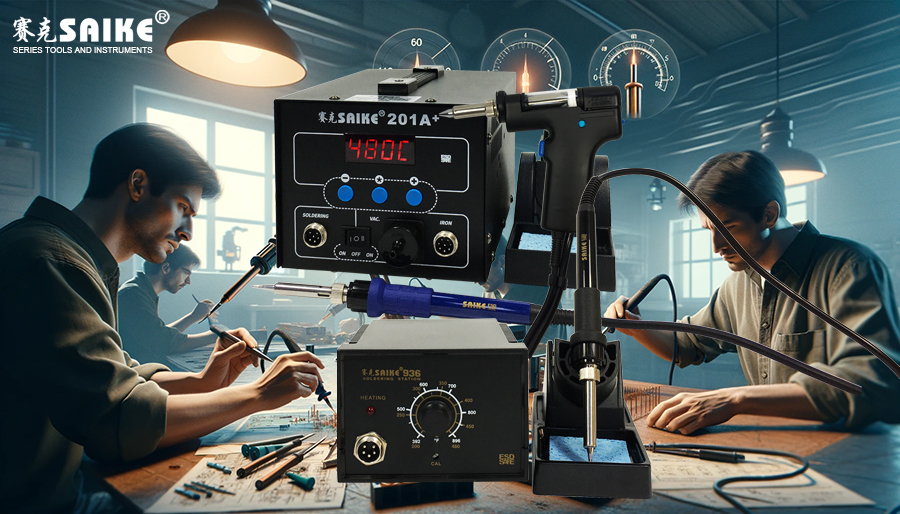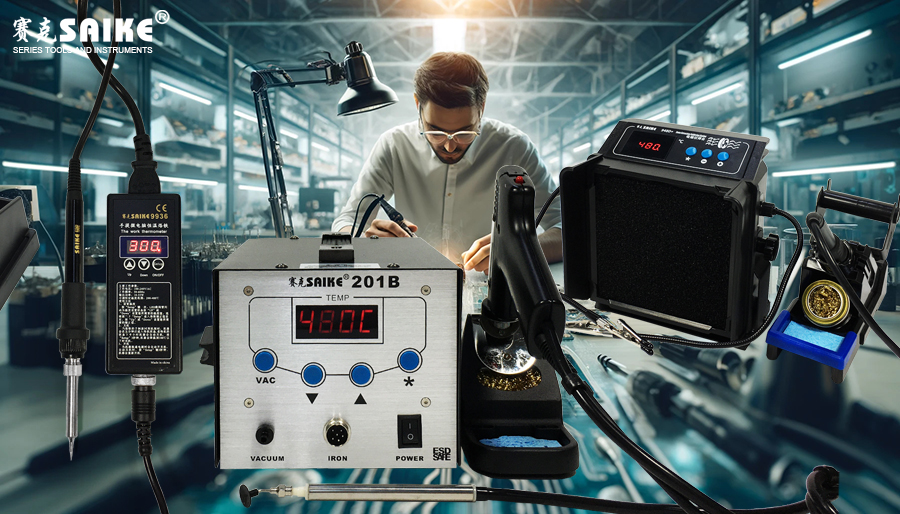
SK-YJ000DLT-KP 100010
The electric soldering iron is an indispensable tool in electronic manufacturing and maintenance work. Choosing the right soldering iron depends not only on its type and design but also on its performance parameters. In this article, we will delve into the main performance parameters of electric soldering irons and compare the performance of different types to help users make more informed choices.
Key Performance Parameters of Electric Soldering Irons
I. Power
Power is one of the most fundamental parameters of an electric soldering iron, directly affecting its heating speed and temperature maintenance capability. The power of electric soldering irons typically ranges from 15 watts to 100 watts.
– Low-power soldering iron
– High-power soldering iron
II. Temperature Range and Control
The temperature control ability of an electric soldering iron determines its versatility and soldering quality. The temperature range usually varies from 200℃ to 450℃.
– Fixed-temperature soldering iron
– Adjustable-temperature soldering iron
III. Response Time
Response time refers to the duration required for the soldering iron to reach its operating temperature from a cold start. A soldering iron with a fast response time can significantly enhance work efficiency, especially in high-intensity work environments.
IV. Thermal Recovery
Thermal recovery refers to the soldering iron’s ability to maintain a stable temperature during continuous soldering. Good thermal recovery means the soldering iron’s temperature won’t drop significantly during use, crucial for professional applications requiring precise temperature control.
V. Durability and Lifespan
Durability and lifespan are influenced by various factors, including manufacturing materials, design, and user maintenance habits. Choosing a high-quality brand and proper maintenance is key to ensuring the soldering iron’s long-term effectiveness.
Performance Comparison of Different Types of Soldering Irons
– Basic Soldering Iron vs. Adjustable-Temperature Soldering Iron:
– Basic soldering irons typically have a longer response time and weaker temperature control but are cost-effective, suitable for non-professional use.
– Adjustable-temperature soldering irons offer excellent temperature control and fast heating, ideal for professional electronic engineers and precision soldering applications.
– Ordinary Soldering Iron vs. Soldering Station:
– Ordinary soldering irons are portable but lack temperature stability and functionality compared to soldering stations.
– Soldering stations provide a one-stop solution.


